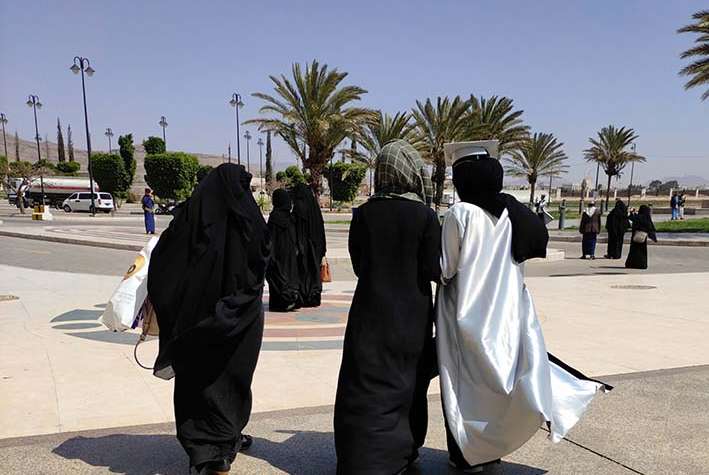Discrimination against women in Yemen is pervasive and deeply rooted in both societal norms and legal frameworks. Women face systemic inequalities in almost every aspect of their lives, from access to education, healthcare to participation in the workforce and politics.
This is mainly due to significant barriers to mobility, especially in the north, with many women requiring male guardianship for basic activities. The Yemeni authorities continue to impose the practice according to which women are required to be accompanied by a male guardian, known as a mahram, for travel unless they show evidence of their guardian’s written approval.
The Mahram system stems from cultural and religious Muslim traditions which recommend the accompaniment of a Mahram in certain contexts, but it is also recognised within Yemen’s legislative framework in the Personal Status Law. The United Nations experts have reported that the Land Transport Regulatory Authority issued a verbal directive in August 2022 mandating that women are allowed to travel only if accompanied by a male guardian.
Despite no official guidance restricting women from traveling without a mahram, women in the south have also been stopped or harassed at various checkpoints such as Southern Transitional Council (STC) checkpoints. The ongoing conflict and humanitarian crisis have exacerbated the difficulties Yemeni women face, making progress towards gender equality even more elusive.
As a result, women often encounter obstacles in accessing education, healthcare, or employment outside their homes and in participating in public life. For example, women are banned from working in some governorates and forced into gender segregation in public space.
These limitations not only curtail women’s basic freedoms but also reinforce their subjugation within a deeply patriarchal society. Indeed, the situation is particularly challenging for women-headed households as women face further risks and barriers when leaving the home to access essential services.
The Mahram requirement has also affected Yemeni women working in the humanitarian aid sector. Since 2022, authorities have increased the restrictions on female national staff without a male guardian, for example when travelling for work or delivering food aid. Consequently, many of them have been forced to resign from their roles in local and international organisations, thus undermining their financial independence. These limitations have also led to a lack of humanitarian access for women and girls because of the reduction of women’s involvement in service delivery, further hindering essential humanitarian programs.
These restrictions violate Yemen’s constitution which claims that “freedom of movement from one place to another within the country is guaranteed for all citizens” and infringe the obligations under the UN Convention on the Elimination of All Forms of Discrimination Against Women (CEDAW), the International Covenant on Civil and Political Rights (ICCPR), and the Arab Charter on Human Rights.
ECDHR calls on all parties to the conflict to dismantle the systemic barriers enriched in the Mahram practice that restrict women’s movement and autonomy. Also, ECDHR urges the international community to pressure the government to end this form of gender-based discrimination as well as other gender discriminatory policies, and establish an independent investigation in the country.

